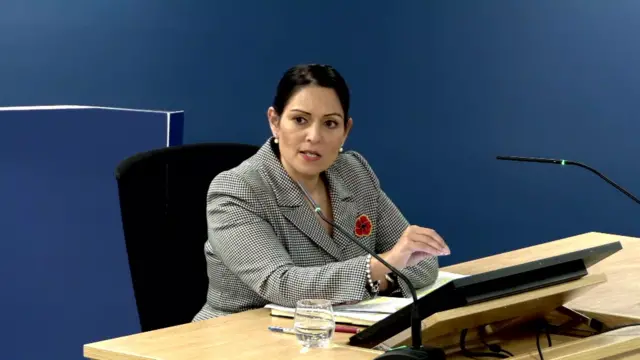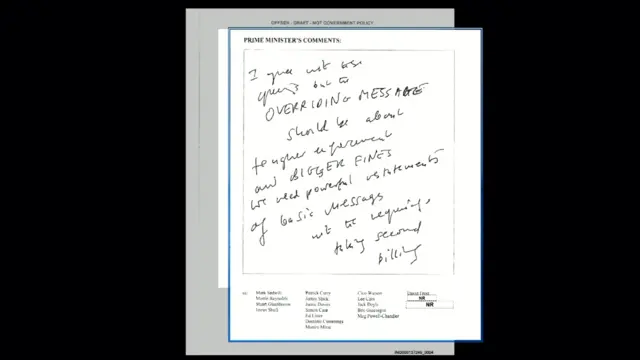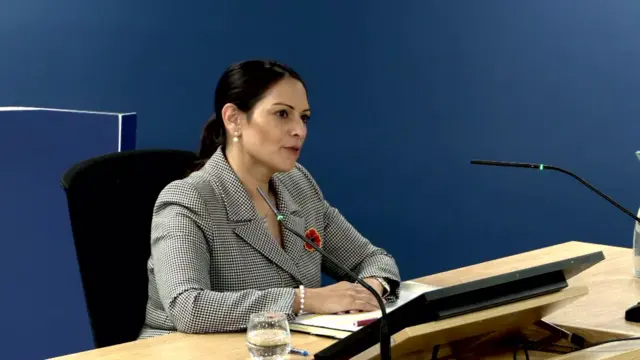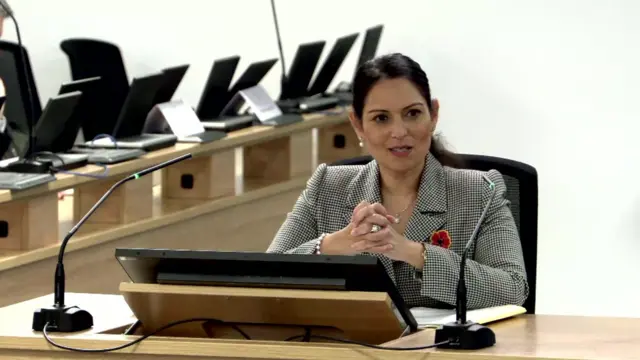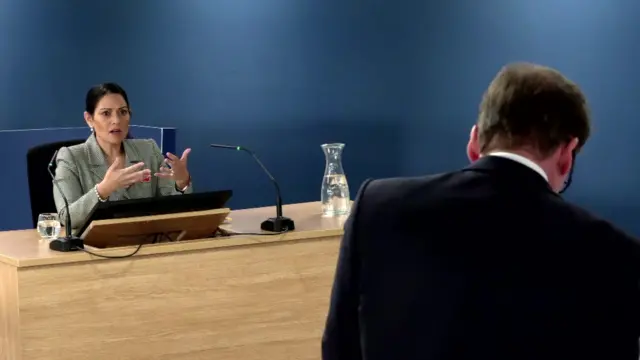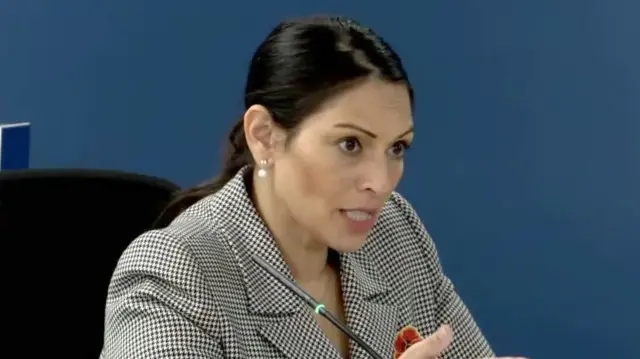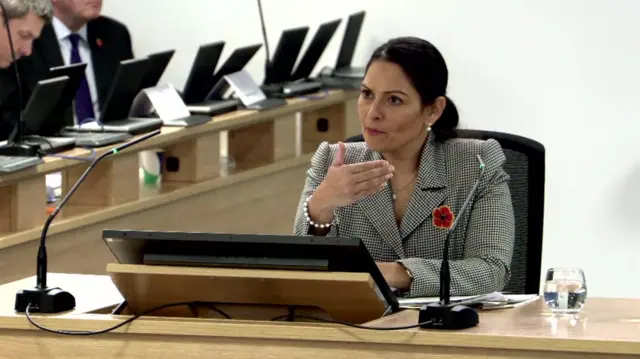What did we learn today?published at 16:10 GMT 9 November 2023
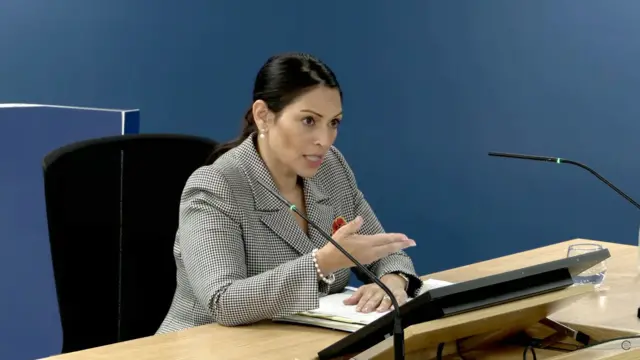 Image source, PA
Image source, PAPriti Patel said there was "no technical capability" in the UK government to be able to stop Covid at the border
Former Home Secretary Dame Priti Patel's portion of the inquiry has finished, so here's what we've learned from her and this morning's witness, Martin Hewitt, the former chairman of the National Police Chiefs' Council:
Border control
- Patel said she was given advice that shutting borders early would have had a "minimal impact" at preventing the spread of the virus
- And she said there was "no technical capability" in the UK government to be able to stop Covid at the border
Police at protests
- The former home secretary said that while the policing of protests during the pandemic appeared "uncomfortable" to some, she felt police generally struck the right balance between freedom of expression and enforcing coronavirus regulations
- But she described policing in March 2021 at a vigil for Sarah Everard - who was kidnapped, raped and murdered by a police officer - was "totally inappropriate"
Fines
- Questioned on the £10,000 fines introduced for regulation breaches, she said they were not proportionate and were "very high"
- And she said data showing black people were three times more likely to receive a fine for breaching regulations "raised concerns"
Drafting of regulations
- This morning, Hewitt said the National Police Chief's Council (NCPP) was told of regulation changes "minutes" before they came into force at times. In her evidence, Patel said Covid rules would often be drafted at night and police briefed in the morning
- Patel said she agrees with the inquiry lawyer that there was a "high degree of confusion" around "complex" regulations - which led to confusion by the public and the police
Jun Pang, policy and campaigns officer for Liberty - an advocacy group which campaigns against abuses of power and provides free legal advice - is giving evidence now. We won't be writing live text updates for his evidence session, but you can watch by pressing play at the top of this page.
